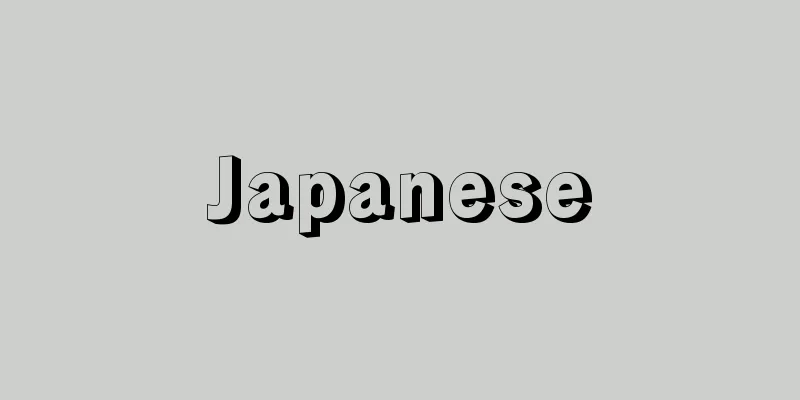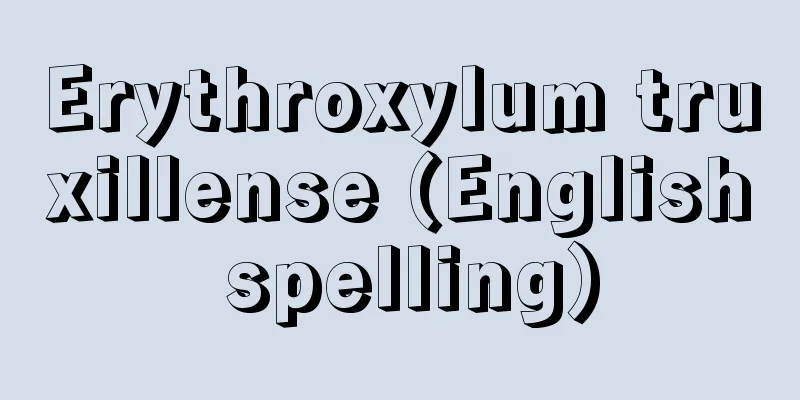Parliamentary privilege - Giintokken

|
Privileges granted to Diet members so that they can fully carry out their duties. They are divided into privilege from arrest, immunity from liability, and the right to receive a salary. The privileges of Diet members in modern parliaments are not the same as the various privileges that privileged classes had in a class-based society, but are a system that ultimately aims to guarantee parliamentary democracy by ensuring the protection of the human rights of Diet members and the freedom of Diet activities through the autonomy of the House. [Yamano Kazumi] Freedom from arrestThis means that Diet members cannot be arrested during Diet sessions, except in cases provided for by law, and members who are arrested before a session begins may be released during the session if the House requests it (Article 50 of the Constitution). This system guarantees the physical and parliamentary freedom of Diet members from the abuse of the power of arrest, and was seen in constitutions during the French Revolution and has since been widely adopted in the constitutions of European countries. Our Constitution makes exceptions for "cases provided for by law," but the Diet Law makes exceptions for "in the case of an in-fighting of a crime outside the House" and "with the permission of the House." In the case of an in-fighting of a crime, this is because the facts of the crime are clear and there is no risk of unjust arrest. When there is a legitimate reason, the House must give permission, and cannot refuse on the grounds of the importance of Diet deliberations, etc. [Yamano Kazumi] Exemption from liabilityThis means that Diet members cannot be held responsible outside the Diet for speeches, debates, or votes made in the Diet (Article 51 of the Constitution). It is a system that enhances the substance of democratic politics by guaranteeing Diet members' freedom of speech and Diet activities, and is based on the same principle as immunity from arrest. In this case, "Diet" does not refer to the physical space inside the Diet building, but to comments made in the course of official duties in committees, plenary sessions, etc., and also includes comments made outside the Diet chamber during national policy investigations and local public hearings. "Responsibility" refers to civil, criminal, and administrative legal responsibility, and does not mean moral or political responsibility. In contrast, abusive language made inside the Diet may be subject to disciplinary offenses. [Yamano Kazumi] The right to receive an annual allowanceEconomic privileges granted to Diet members. Diet members' remuneration is the economic foundation that supports their activities, and Article 49 of the Constitution stipulates that "Members of both Houses shall receive appropriate annual salaries from the national treasury, as provided by law." In the early days of the parliamentary system, Diet members were composed only of honorary and unpaid wealthy persons, but with the spread of universal suffrage, remuneration began to be paid. Diet members' remuneration is called annual salary, and is set at an amount lower than the maximum salary of regular national civil servants. In addition to annual salary, Diet members are granted retirement benefits, free travel on JR trains, communication allowances, travel expenses, living expenses, end-of-term bonuses, miscellaneous Diet expenses, and other economic privileges such as the provision of Diet member lodgings and offices, and the payment of three secretaries at the national expense. [Yamano Kazumi] Source: Shogakukan Encyclopedia Nipponica About Encyclopedia Nipponica Information | Legend |
|
国会議員に対し、その職責を十分に遂行しうるために認められている特権。不逮捕特権、免責特権、歳費などを受ける権利に分かれる。近代議会における議員特権は、身分制社会における特権身分の有していた種々の特権ではなく、議員の人権保障と国会活動の自由を議院の自律性によって確保することにより、最終的には議会制民主主義の保障を目ざした制度である。 [山野一美] 不逮捕特権国会議員が、法律の定める場合を除いて、国会の会期中逮捕されず、会期前に逮捕された議員は、その議院の要求があれば会期中釈放される(憲法50条)ことをいう。逮捕権の濫用から、議員の身体と国会活動の自由を保障する制度で、古くフランス革命期の憲法にみられ、その後広くヨーロッパ諸国の憲法にも採用されている。わが国憲法は「法律の定める場合」を例外とするが、国会法では「院外における現行犯罪の場合」と「院の許諾ある場合」としている。現行犯については、犯罪事実が明白で不当逮捕のおそれがないためである。正当な理由あるときは、議院は許諾を与えなければならず、国会審議の重要性などを理由に拒否できない。 [山野一美] 免責特権議員が、議院で行った演説、討論または表決について院外で責任を問われない(憲法51条)ことをいう。議員の自由な言論や国会活動を保障することによって民主政治の内実を高める制度で、不逮捕特権と同趣旨に基づく。この場合「議院」とは、議事堂内という物理的空間ではなく、委員会、本会議などで職務上行った発言などをさし、議場外での国政調査や地方公聴会の席での発言なども含まれる。「責任」は民事、刑事および行政上の法的責任で、道義的または政治的責任を意味しない。これに対して、院内での暴言は懲罰事犯の対象となる場合がある。 [山野一美] 歳費などを受ける権利議員に認められる経済上の特権。議員の報酬は議員活動を支える経済的基礎で、憲法第49条は「両議院の議員は、法律の定めるところにより、国庫から相当額の歳費を受ける。」と定める。議会制の初期は、議会は名誉職・無報酬の有財産者のみによって構成されたが、普通選挙制度の普及とともに報酬支給が行われるようになった。議員報酬は歳費とよばれ、一般職の国家公務員の最高額より少ない額とされる。歳費のほか議員には、退職金、JR自由乗車の特典、通信手当、旅費、滞在費、期末手当、議会雑費が認められ、また議員宿舎および事務室の提供、3人の秘書についての国費支弁などの経済的特典が認められている。 [山野一美] 出典 小学館 日本大百科全書(ニッポニカ)日本大百科全書(ニッポニカ)について 情報 | 凡例 |
<<: Parliamentary Secretary - Giinhisho
Recommend
Grey thrush
A bird of the Turdus subfamily, family Muscicapid...
Ume [river] - Ume
...A port city in northeastern Sweden, near the m...
Ito Suketoki
1185-1252 A military commander of the Kamakura pe...
Courtesan's nightwear chest - Oiran no yagunagamochi
… They were used to carry food and tea ceremony u...
Sheng-yu guang-xun; Shêng-yü kuang-hsün
A teaching document distributed by the Yongzheng E...
Muḥammad 'Ali
1769‐1849 Governor of Egypt; founder of the Muhamm...
Suaeda japonica (English spelling)
…[Tetsuichi Yahara]. … *Some of the terminology t...
margarita
…Pearls were brought from Persia and India by the...
Mining and manufacturing
A general term for mining and manufacturing. Of th...
East [town] - Azuma
A former town in Inashiki County in southern Ibara...
δ function - delta function
A function introduced by P.A. Dirac to formulate q...
Koto (Japanese harp)
In a broad sense, it is a general term for stringe...
Pastoral Letters
A collective term for three letters in the New Te...
Kayes - Kayes (English spelling)
A city in southwestern Mali, West Africa. It is l...
Hitoyoshi-so
This manor was located in Kuma County, Higo Provin...









